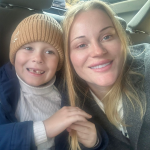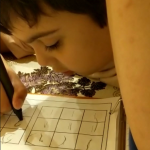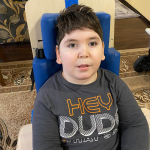Common Communication Deficiencies in Autistics
Through numerous psychological experiments, it has been established that children who understand the purpose of communicating with others, how to behave in society, engage in joint activities, and correctly perceive non-verbal signals are more socially developed. However, the communicative sphere in many autistics remains underdeveloped, and the corresponding skills are not formed.
Even at an early age, as soon as children acquire coherent speech, communication deficiencies can be noticed that need to be corrected.
- Such children find it difficult to maintain order during play or conversation.
- They are unable to effectively participate in a dialogue (starting, maintaining, and ending a conversation) or often use repetitive expressions or choose “distraction” topics to initiate a conversation.
- Autistics have difficulty understanding emotions and responding appropriately to them, which is why they may not apologize if their behavior upset someone.
- They do not sense personal space boundaries and often get too close to others.
- If they struggle to understand even simple sentences, they may ask for them to be repeated, which can prolong the conversation. This also happens when they need to spend more time analyzing verbal information.
- Lastly, autistics are often poorly oriented in social situations and may ask for something or greet someone at inappropriate times.
Nevertheless, the presence of such issues does not indicate a delay in mental development, but rather a lack of communication skills. Fortunately, the necessary communication skills can be developed, although parents will need to put in considerable effort.
Ways to Develop Communication Skills:
- The first rule is that any conversation should be casual, and the child should behave naturally. Neutral topics can be chosen for discussion, such as the weather, traffic, holidays, favorite foods, and movies.
- The child should be praised if they initiate a conversation with a greeting and general questions.
- Participation in interactive board games, where turn-taking, asking questions, and cooperating with others to achieve a goal are required, plays a positive role.
- It is important that during conversations with parents, the child has the opportunity to choose topics of interest, express their opinion, and ask about the other person’s thoughts. Additionally, this type of communication can expand their vocabulary.
- Watching movies together and discussing them afterward is very useful. The goal is to ensure that the child does not settle for one-word answers but tries to explain what they liked and which character made the biggest impression on them.
- The child will not feel confused if they are prepared for various situations in advance—for example, before attending a birthday party. They should be reminded how to greet the birthday person and all the guests, and further explain how to behave. Overall, they should understand that they will have to communicate with others on various occasions and know, for instance, that on New Year’s Eve, they should wish people a happy holiday, and when visiting a sick peer, they should wish them a speedy recovery.
- In daily life, it is essential to ensure that the child does not simply take what they need but asks for it. For instance, their favorite toys and treats should be placed higher, out of their reach, so they have to ask for them.
- The child can improve their communication skills by observing others and copying their behavior. This will also help them interpret verbal and non-verbal signals better.
- Listening to recordings of words and expressions said with different emotions fosters empathy. This will help them recognize and understand feelings.
- To teach personal space preservation, the child should be trained to stand at arm’s length from the other person during conversation.
Solving Communication Problems with Autism: Addressing communication problems in autistics is not an easy task and requires a lot of time. Positive changes can be achieved more quickly if stem cell therapy is used, which can eliminate or make the symptoms of the disorder less obvious. This is a highly natural method of correction aimed at treating autism itself, rather than just its manifestations. It involves the transplantation of the patient’s stem cells, which replace those that cannot function properly. As a result, the brain and nervous system function normally, and the individual’s development speed increases.
Stem cell therapy provides a long-lasting positive effect, enhancing the effectiveness of other measures to stabilize the condition of autistics. This approach is used by the best clinics in the world, including the Mardaleishvili Medical Center. The center’s doctors have extensive and successful experience in treating autism spectrum disorders and are equipped with state-of-the-art equipment. Moreover, the center’s services are more affordable compared to other countries, and its staff offers a range of assistance in planning the trip and handling accommodation during the rehabilitation period.
After stem cell therapy, communication will no longer be a problem!
Autism Treatment Center Videos
Autism treatment with own stem cells
Cord blood association congress
International Quality Crown
Autism Treatment Reviews
Autism treatment with own stem cells
The story of Alessandro (6 years old)
Autism Patient Testimonial - Stem Cell Treatment
Clients Testimonials

Feedback from Igor, David’s father (12 years old) Read More

Feedback from Olga, Fedya’s mother Read More

Feedback from Natalia, Radomir’s mother (15 years old) Read More

Feedback from Esther, Samuel’s mother (8 years old) Read More

Feedback from Abibe, Selim’s mother (7 years old) Read More












